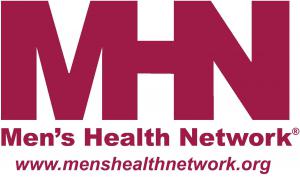Military leaders, veterans’ organizations step up to prevent suicide
Navy Rear Adm. Bruce Gillingham told reporters last fall that about 30 percent of the Navy’s mental health professionals have been assigned to fleet units. “We have found that this has had a significant benefit in the sense that it lowers barriers to access and decreases stigma, and we’re seeing that sailors are now more comfortable coming forward,” he said. “They know these professionals, they know that they live and work with them, and so they’re coming forward earlier.” The Army also has established a program to help active service members.
Its Suicide Prevention Program (ASPP) emphasizes readiness and resilience for active duty soldiers, Army civilians and Army family members. ASPP educates and trains active duty, Reserve and National Guard Soldiers, Army Civilians and Family members on suicide prevention and postvention actions to minimize the risk for suicide including indicators of potential suicidal behavior, intervention strategies, and services and resources.
The Marine Corps’ DSTRESS line (1-877-476-7734) is an anonymous Marine-to-Marine phone and chat support service that operates 24 hours a day, 7 days a week. The line is staffed by veteran Marines, former Fleet Marine Force Navy Corpsmen, Marine spouses and family members, and licensed behavioral health counselors. The goal of the DSTRESS Line is to help callers manage stress in all forms, ranging from relationship and career issues to deployment and financial problems, and to develop the necessary skills required to cope with the widely varying challenges of life in the Corps.
The Air Force has implemented 11 initiatives aimed at strengthening social support, promoting development of social skills, and changing policies to encourage help-seeking behavior.
All programs also emphasize the importance of the National Suicide Prevention Hotline (800-273-8255). The number will change in 2022 to a new 3-digit number, 988.
Men’s Health Network (MHN) supported the legislation to create a national three-digit suicide prevention hotline number. You can read about that support at tinyurl.com/28nvyluy.
Such help is urgently needed as the magnitude of the problem is heartbreaking. According to the 2019 Annual Department of Defense report, released last fall, the overall rate of deaths by suicide across the services rose from 20.2 deaths per 100,000 in 2015 to 25.9 in 2019.
Caucasian soldiers committed more than 80 percent of suicides, and nearly 70 percent of suicide attempts were also committed by Caucasians. Younger active-duty military, Reservists and National Guard (ages 20 to 24) were most likely to commit suicide, the DoD report said.
As for veterans, new military veterans are 93 percent more likely to die by suicide than the general public, an analysis published Friday by JAMA Network Open found. (You can read that report here: tinyurl.com/6x31xqk7)
The assessment, which focused on nearly 1.9 million service members who left the military between 2010 and 2017, found that more than 3,000 service of them died by suicide, with the majority -- just over 94 percent -- men.
In the JAMA Network Open analysis, among those who left the military from the beginning of 2010 through the end of 2017, suicide rates were highest among American Indian and Alaska Native service members -- 56 per 100,000 veterans -- and White American service members -- 46 per 100,000 veterans. A recent Veterans Affairs report reiterates these shocking statistics.
Veterans ages 18 to 34 experience a higher rate of suicide than all other age brackets. The suicide rate for young veterans swelled by 76% from 2005 to 2017, according to the Veterans Affairs’ 2019 National Veteran Suicide Prevention Report, released in 2019. You can read that report: tinyurl.com/yjwtnhng
A conference in Houston, TX, called “All Hands on Deck: Community Convening to Improve Research on Veteran Suicide Prevention” will facilitate discussions among 200 stakeholders to design innovative engagement strategies to reduce veteran suicides. It’s a project of Elisa Borah, Ph.D., and Cheryl Krause-Parello, Ph.D., RN, at the University of Texas at Austin, and is funded by the Patient-Centered Outcomes Research Institute (PCORI).
Stakeholders include family members, concerned significant others, mental health providers and researchers.
Addressing the behavioral health issues and suicide in the military is a critical aspect of MHN programmatic work and advocacy. MHN believes that an important part of the solution to military and veteran suicides need is to focus on providing support for those who self-identify as being in immediate danger of harming or killing themselves and to reach out pro-actively more effectively and confidentially to those who may be at risk and offering help before a crisis presents itself (watch our Congressional briefing on Veterans and Active Military: Mental Health and Suicide Issues here: https://www.youtube.com/watch?v=OiZlGdW8v48&t=1176s).
Many in the research community are also trying to make a difference by supporting important research work in this area, including PCORI. Learn more about PCORI at www.pcori.org.
Men's Health Network
Men's Health Network (MHN) is an international non-profit organization whose mission is to reach men, boys, and their families where they live, work, play, and pray with health awareness messages and tools, screening programs, educational materials, advocacy opportunities, and patient navigation. Learn more about MHN at www.menshealthnetwork.org and follow them on Twitter @MensHlthNetwork and Facebook at www.facebook.com/menshealthnetwork. Consider donating to MHN at www.menshealthnetwork.org/donate.
Brandon Ross
Men's Health Network
+1 7147889631
email us here
Visit us on social media:
Facebook
Twitter
LinkedIn
Legal Disclaimer:
EIN Presswire provides this news content "as is" without warranty of any kind. We do not accept any responsibility or liability for the accuracy, content, images, videos, licenses, completeness, legality, or reliability of the information contained in this article. If you have any complaints or copyright issues related to this article, kindly contact the author above.

